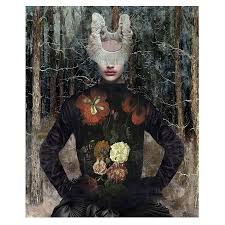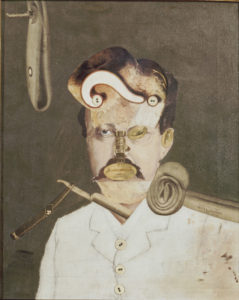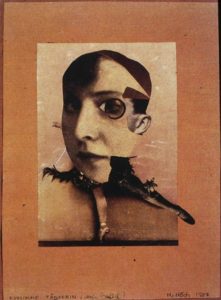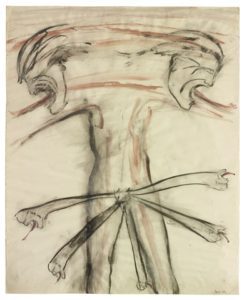One of my goals for this semester of workshop has been to unpack my connection to nature and to the Earth, (as a source for my writing) and try to be more mindful while doing so. Something I have been struggling recently is the issue of agency and responsibility, and being hyperaware of many instances in nature that we are scared by, annoyed by, or simply do not notice. My thoughts always come back to this: the world was here first, so what are we doing?
I’ve been writing a lot in my journal lately little reminders to myself for dealing with the sometimes crippling effects of trauma and grief. Among the ones that keep popping up are telling/owning your story, using the creative arts, and letting go of isolation. I thought I had boiled down 12 years of therapeutic interventions. But just yesterday I had to revisit this.
I was listening to the radio more to drown out the sound inside my own head than to take in anything new from NPR. But there it was. An opening line that reminded me of the integral piece of recovery I had forgotten. The report started something like this: “World War II veteran Earl Shaffer is believed to be the first American to walk the Appalachian Trail in one season, and his diary details the 124-day south-to-north trek. Back in 1948, Shaffer said he wanted to, ‘Walk the Army out of his system.'”
Walking off the war. I understood that. The report went on to talk about Warrior Expeditions, which, in recognizing the therapeutic effects of long distance outdoor expeditions, followed in Earl Shaffer’s footsteps, creating the Warrior Hike, Warrior Bike and Warrior Paddle programs, all designed to help combat veterans transition from their military service. As I listened, a flood of connections came rushing to the forefront of my mind. I remembered reading how when Theodore Roosevelt’s wife and mother died only hours apart, he found emotional healing from his intense and crippling depression in the only way he could: by heading for the Dakota territories and living and working as a rancher. Roosevelt’s experiences out west during this difficult time catalyzed his work as a conservationist, in large part because he believed nature was a healing modality that should be available to everyone.
(This is another one of my main frustrations–how we have entirely changed the meaning of ‘necessary’ and ‘available’) But, I digress…
I have often talked about childhood trauma, sexual abuse and/or incest as microcosms of war. Thus, it makes complete sense to me that soldiers who leave the battlefield fatigued and traumatized find comfort in communion with nature because no single thing has healed the deepest fissures in me, left by years and years of physical and sexual abuse, as well or as quickly as hiking a National Park trail up a mountain, standing at the foot of a vast ocean, or wandering the red rocks of a desert canyon.
Nature doesn’t just heal emotional and psychological wounds. It heals physical ones.
I know that whenever my “living inside my head” has simply become too much, when the work of living seems to hurt and my soul feels bruised to the touch, I can always find solace and peace at the foot of the ocean, my bare feet sinking into sand, the sound of the waves in my ears and the smell of saltwater leaking into the pores of my skin. Nature makes no demands on me but that I slow down, breathe and live, as I am supposed to, in the transience of now.
Now, this semester, because I am taking an eco-criticism course with Professor Cooper, and exploring poetic sources in workshop, I have not been able to shake any of these sentiments from my head. I recognize the benefit and the connection that I feel with nature–I feel that I am re-cultivating that connection in a healthy, non-selfish way. But I want my relationship with the natural world to be symbiotic, and I do not think that simply using nature to unwind and then writing poetry about it is necessarily fair. I guess what I’m trying to get to is that I want to understand how my agency works here–how I can use the natural world to bring myself back into it naturally, and encourage others to bring themselves back as well–not simply because it is an easy way to clear your mind, but because I feel it is one of the only ways left to investigate our purpose in this life.
Does anyone else experience any similar frustrations? How do you guys use nature in your own work? Do you think it is selfish? What are the benefits from relating mental illness to the natural world?
there are so many questions…..





